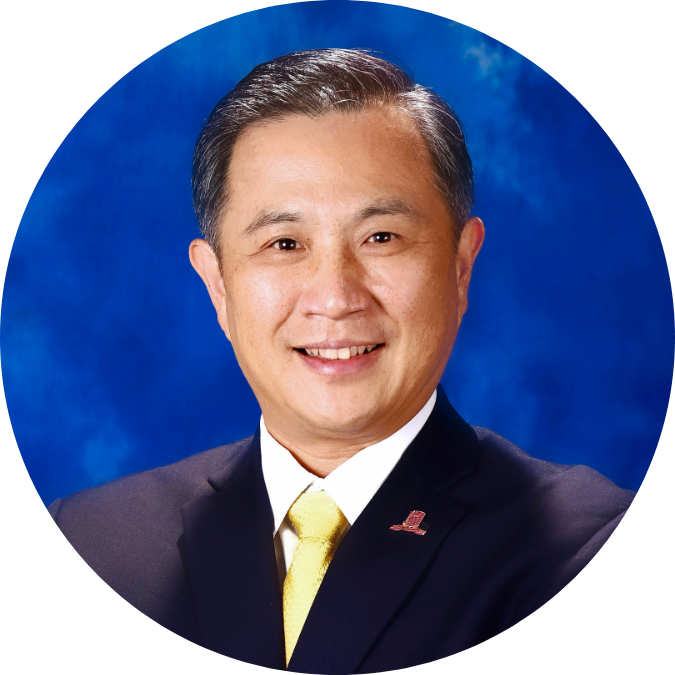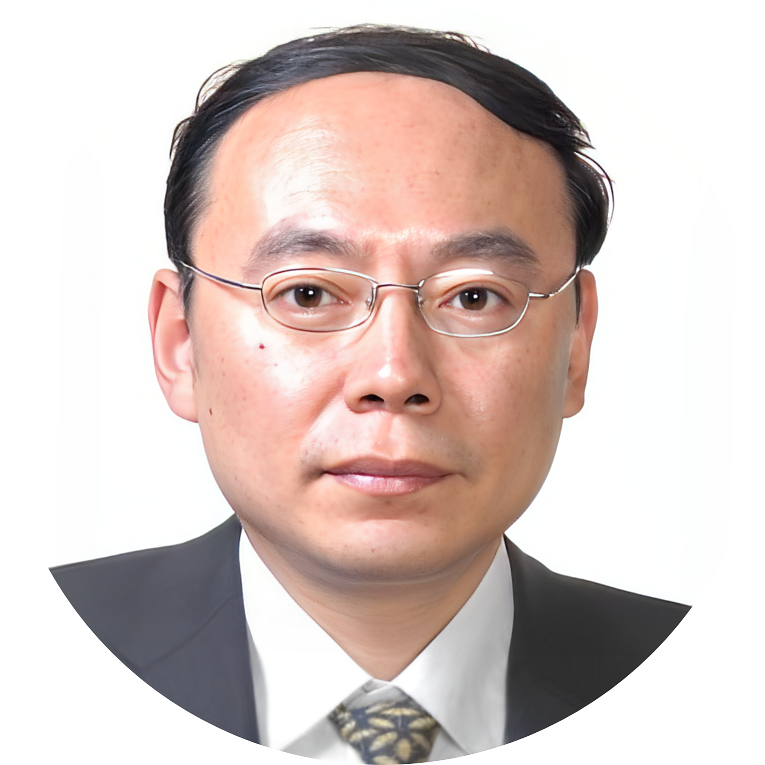Speaker 2025
Keynote Speaker Ⅰ

Prof. Irwin King
Fellow of ACM, IEEE, INNS, AAIA, and HKIE
The Chinese University of Hong Kong, China
Biography: Professor Irwin King, Pro-Vice-Chancellor (Education) and Distinguished Professor at the Department of Computer Science & Engineering, The Chinese University of Hong Kong, has a diverse research portfolio in machine learning, social computing, artificial intelligence, and data mining. His scholarly contributions include publications in prestigious journals and editorial board memberships with international publishers. He has received numerous accolades, including Test of Time Awards at ACM CIKM, ACM SIGIR, and ACM WSDM, and the Dennis Gabor Award from INNS for his pioneering work in machine learning within social computing. As a Fellow of ACM, IEEE, INNS, AAIA, and HKIE, he has demonstrated exceptional leadership in the field. He has held significant positions, including President of the International Neural Network Society (INNS) and General Co-chair for premier international conferences like WebConf, ACML, and RecSys. He is also the Director of the ELearning Innovation and Technology (ELITE) Centre and the Machine Intelligence and Social Computing (MISC) Lab. His academic journey began with a Bachelor of Science degree from Caltech, followed by a Master of Science and Doctor of Philosophy in Computer Science from the University of Southern California (USC).
Speech Title: Multimodal Foundation and Large Language Models: Applications, Challenges, and Future Directions
Abstract: In recent years, the field of artificial intelligence has witnessed significant advancements in multimodal foundation models and large language models. This presentation will delve into these models, elucidating their internal mechanisms and applications across diverse domains, encompassing science, medicine, robotics, and beyond. We will scrutinize the prevailing trends in multimodal models, underscoring their growing importance in comprehending and processing complex information. Additionally, we will investigate the challenges faced by these models, such as scalability, trustworthiness, and explore potential future directions for the field. By analyzing innovative approaches to address these challenges and considering the impact of emerging technologies, we endeavor to inspire further research and innovation in this rapidly evolving field.
Keynote Speaker Ⅱ

Prof. Xin Yang
Dalian University of Technology, China
Speech Title: Frontiers and Perspectives in 3D Spatial Video Reconstruction
Abstract: This report focuses on the key technologies and cutting-edge developments in 3D spatial video, systematically outlining the complete technical workflow from data acquisition and 3D reconstruction to rendering and interaction. It places particular emphasis on the technical bottlenecks in dynamic scene reconstruction and identifies critical pathways for future development. Addressing the technical challenges of 3D spatial video reconstruction in complex dynamic scenes, the report draws on the team's existing research to provide in-depth technical insights and discussions on core issues. Finally, the report summarizes the advancements in 3D spatial video reconstruction technology and explores its broad application prospects in areas such as immersive interaction and stage performances.
Keynote Speaker Ⅲ

Prof. Jie Yang
Shanghai Jiao Tong University, China
Biography: Jie Yang received a bachelor’s degree in Automatic Control in Shanghai Jiao Tong University (SJTU), where a master’s degree in Pattern Recognition & Intelligent System was achieved three years later. In 1994, he received Ph.D. at Department of Computer Science, University of Hamburg, Germany. Now he is the Professor and Director of Institute of Image Processing and Pattern recognition in Shanghai Jiao Tong University. He is the principal investigator of more than 30 national and ministry scientific research projects in image processing, pattern recognition, data mining, and artificial intelligence. He has published six books,more than five hundreds of articles in national or international academic journals and conferences. Google citation over 26300,H-index 83. Up to now, he has supervised 5 postdoctoral, 46 doctors and 70 masters, awarded six research achievement prizes from ministry of Education, China and Shanghai municipality. He has owned 48 patents. Three Ph.D. dissertation he supervised was evaluated as “National Best Ph.D. Dissertation” in 2009, in 2017, in 2019. He has been chairman and keynote speaker of more than 10 international conferences.
Speech Title: Researches on the Defenses and Out-Of-Distribution Detection in Trustworthy Deep Learning
Abstract: The rapid advancement of deep learning has had a transformative effect on the development of technology and society across a multitude of sectors. In safety-critical contexts, the potential for neural network models to produce unreliable outputs in response to “malicious” or “unanticipated” inputs poses a severe risk. This talk delves into the output reliability from neural network models within the domain of trustworthy deep learning. 1) inputs that involve pixel perturbations, exemplified by adversarial examples,w.r.t the task of adversarial and certified robustness; 2) inputs that represent distribution shifts, exemplified by Out-of-Distribution (OoD) data, w.r.t the task of out-of-distribution detection. We introduce a novel strategy of model augmentation, adopt a multi-head neural network structure, and pose diversity constraints related to adversarial robustness into the model parameters.We adopt a multi-head neural network structure, use the ensemble of multiple heads in place of the ensemble of multiple neural networks,which significantly reduces the computational load in both training and certification phases. We propose that the non-linearity in InD and OoD data hinders PCA from learning a subspace that fully embodies their diversities. We propose a mode ensemble method that not only enhances detection performance but also significantly reduces the performance variance among independent modes. We propose performing linear dimension reduction on the gradient using a designated subspace that comprises principal components.
More speakers will be announced soon...
